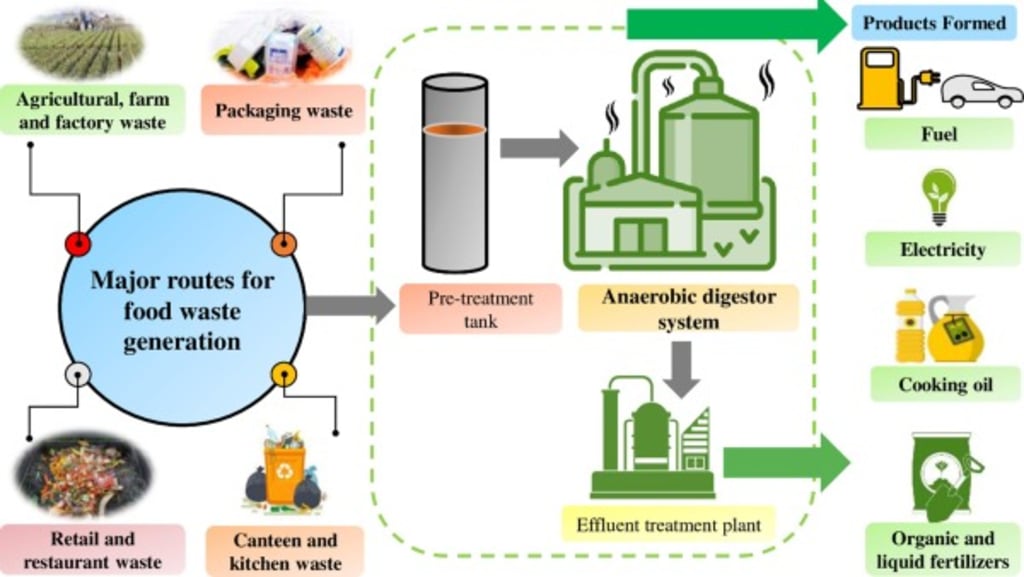Turning Food Waste into Sustainable Energy: Global Innovations Leading the Way
How Entrepreneurs Across the Globe are Transforming Food Waste into Eco-Friendly Fuel Solutions

Introduction
The mounting problem of food waste has captured the attention of entrepreneurs worldwide, inspiring them to find innovative ways to repurpose discarded food into valuable sources of energy. Each year, a staggering 1.3 billion tons of food are thrown away, contributing to environmental degradation and economic loss. However, in various corners of the world, visionary individuals are spearheading initiatives that convert food waste into sustainable fuel alternatives, reducing methane emissions and alleviating pressure on traditional energy resources. This article delves into three compelling stories from Argentina, Indonesia, and Sierra Leone, highlighting the remarkable efforts of these entrepreneurs in driving change.
Biologs from Cider Mill Waste: Argentina's Eco-Friendly Barbecues
In the picturesque region of Argentina, cider mills generate substantial waste in the form of pumice, a byproduct of apple and pear cider production. Enterprising innovator Jose Alberto Ardenberry, along with his wife, Christina, established Biot, a company committed to transforming this waste into "biologs" – an eco-friendly alternative to traditional charcoal used in barbecues.
The process involves drying the pumice thoroughly before compressing it into brick-like logs. These biologs burn efficiently, emitting fewer pollutants than traditional charcoal. While Biot faces scaling challenges, its positive impact on the environment and local economy is undeniable. This venture exemplifies how resourcefulness can tackle waste problems while fostering a more sustainable lifestyle.
Tofu Wastewater to Power Indonesian Kitchens
In West Java, Indonesia, a thriving tofu industry generates copious amounts of wastewater, presenting significant environmental concerns if left untreated. However, a groundbreaking biogas plant in Sumadon has emerged as the solution, converting the pungent tofu wastewater into a valuable source of cooking fuel.
Through the anaerobic digestion process, specialized bacteria break down the organic matter in the wastewater, producing methane – a clean and renewable gas that powers stoves in 56 households. Although the biogas plant's circular model has some limitations in terms of continuous supply, small-scale biogas plants hold tremendous potential in providing sustainable energy options for communities, particularly in areas with limited access to traditional energy sources.
Coconut Waste and the Fight Against Deforestation: Sierra Leone's Briquettes
In Sierra Leone, entrepreneur Alhaji Saraj Ba is taking on deforestation, a pressing consequence of the charcoal industry. Alhaji's company, Rogue Style Trading, focuses on converting coconut waste into briquettes, offering a sustainable alternative to traditional wood-based charcoal.
By collecting discarded coconut shells from street vendors, Alhaji employs a unique process to transform them into charcoal briquettes. These briquettes burn longer than conventional charcoal, making them a preferred choice for eco-conscious customers, including those who use hookahs. While promoting such alternatives poses challenges, Alhaji's tenacity and innovative approach have begun to garner recognition both locally and internationally.
Conclusion
The remarkable stories of these visionary entrepreneurs demonstrate the power of ingenuity and determination in addressing pressing global issues, including food waste, climate change, and deforestation. By harnessing food waste and converting it into renewable energy sources like biogas and briquettes, these innovators are paving the way towards a more sustainable and eco-friendly future.
Beyond reducing harmful methane emissions, these initiatives offer cleaner energy options for communities around the world. With continued support, innovation, and awareness, the ripple effect of these endeavors can inspire broader action in promoting responsible waste management and sustainable energy practices.
Collectively, the efforts of these entrepreneurs represent a step towards creating a greener and more resilient planet for generations to come. As we unite in the pursuit of sustainable solutions, there is hope for a future where the vast potential of food waste is harnessed to power cleaner, healthier, and more sustainable communities worldwide. Together, we can embrace these transformative innovations and foster a brighter future for our planet.





Comments
There are no comments for this story
Be the first to respond and start the conversation.